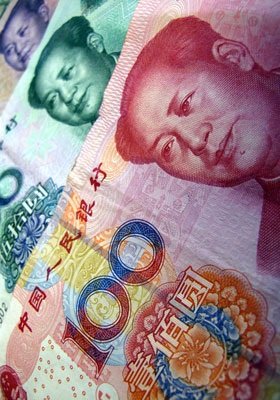Andrew Michael Teo

In recent years, we have seen a surge in Chinese companies offering their Initial Public Offers in Stock Exchanges outside Mainland China, mainly the American Stock Exchanges and the Singapore Exchange.
Most of these Chinese companies, despite their claims of profitability, had their listing approval rejected within Mainland China Stock Exchanges in Shanghai and Shenzhen. One notable reason for these companies failure to be listed within Mainland China was primarily due to their unwillingness or inability to fully disclose their financial statements.
Hence, due to their hunger for funds and aspiration to become “global” as well as to be known as a listed company, many of these Made-In-China companies slipped into stock exchanges outside Mainland China through back-door reverse mergers with dormant shelf-companies, incorporated mainly in the Bahamas, British Virgin Islands, Cayman Island, etc.
The Security and Exchange Commission (SEC) has in recent months started investigations into some reputable accounting and auditing firms over their audit of Chinese companies that are listed in the US Stock Exchanges, notably NASDAQ and the New York Stock Exchange (NYSE). Reverse merger, though legal, allows a company to be listed on stock exchanges without as much regulatory scrutiny and it also requires a lot less information to be disclosed to investors then a traditional Initial Public Offer (IPO). However, the SEC’s ability to discipline these companies is limited, and since the SEC’s jurisdiction does not extend into China, it cannot subpoena documents and people. And with the company’s assets and senior executives based in China, the SEC’s authority to enforce any decisions against these companies is limited.
When China’s youku.com’s repeated applications for listing in Shanghai and Shenzhen Exchanges were rejected due to lack of disclosures, financial losses, and also some pending lawsuits for infringement of copyrights and patents, it did a reverse merger by incorporating youku.com Inc in the Cayman Islands. However, even youku.com did a reverse merger, its application for listing in NYSE was rejected at least twice for the same reasons. When youku.com finally got its approval for listing in NYSE on December 7th 2010 (NY Date), none of the local media was prepared to provide news coverage for its CEO, Victor Koo.
Offers of lavish entertainments and generous bribes were just simply hard to resist by journalists in the local media who finally relented and gave Victor Koo a simple interview to save his face. Two days prior to its maiden trading, a middleman based in New York was offered bribes of 800,000 Renminbi (initial asking was 1,000,000 Renminbi) to talk up youku.com’s share prices. Hence, youku.com went public listed even though it was US$25 million in the red!
The immediate question is: How reliable, at least in financial accounting sense, are these Chinese companies? Since these companies had their applications for listing within their motherland in Shanghai and Shenzhen Exchanges rejected repeatedly for lack of disclosure, why then would a foreign stock exchange approved their listings in their exchanges knowing that listing of a company’s shares through reverse mergers would require the disclosure of less information to investors? Thirdly, given the fact that listing of a foreign company’s shares in a foreign stock exchange requires lesser disclosures, how are local investors in these exchanges protected against accounting, auditing and management frauds? Fourthly, how is the management (even the assets and documents) of these companies be held accountable and responsible since they are mostly based in China? Last but certainly not the least important, how knowledgeable is the listing approving authority in such companies?
The sub-prime crisis of 2008, which eventually developed into a global economic crisis, had revealed the lack of firmness of the Central Bankers and financial authorities in regulating and governing financial institutions giving financial institutions much leeway to undertake risky investments that were beyond their financial capacity. Similarly, will the laxness of the listing authority of the stock exchanges in approving Initial Public Offering by these Chinese companies through reverse mergers create yet another global crisis?

